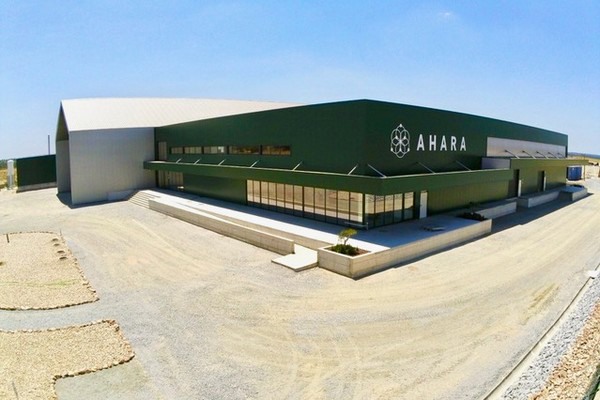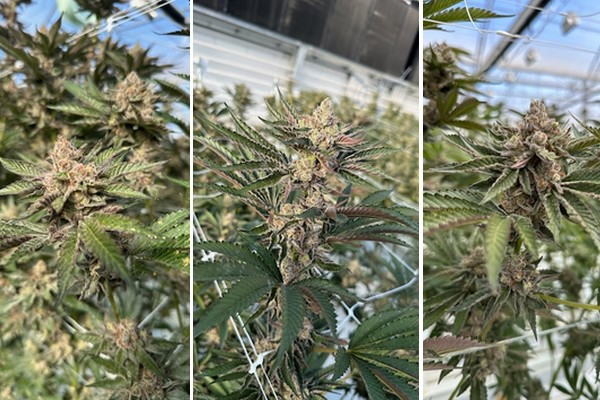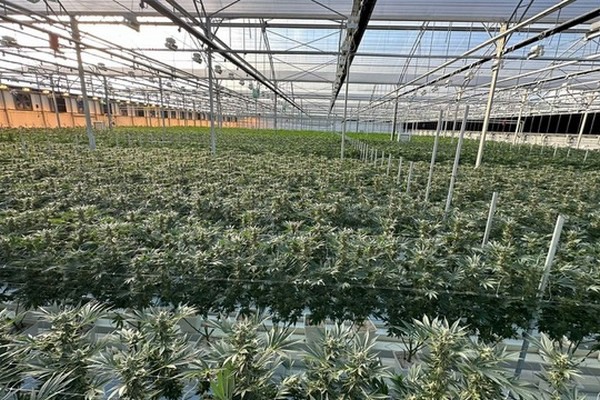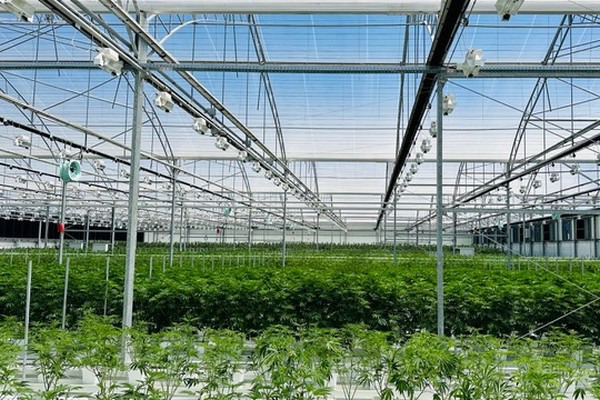The MMJ Portugal market can be a bit tricky due to its many regulations. "If I wanted to register a product for sale in Germany, for instance, it'd take me 8-12 weeks," says Joao Lourenco, co-founder of Ahara, a medical cannabis company based in Portugal. "On the other hand, here in Portugal, there is a lot of bureaucracy. A product to be approved can take up to 9-15 months. However, at the same time, Portugal did a fantastic job regulating the cultivation side of the business."
That is also why Joao and Ahara are in the process of setting up an indoor cultivation facility next to their greenhouse. The company plans to build a 500-square-meter growing room in the next couple of months, with more space projected to come online next year. "Going indoors allows us to expand our genetics portfolio, ensuring we can cultivate those varieties that can be tricky to grow in a greenhouse environment."

In the meantime, greenhouse cultivation is continuing to be in full swing. "The hybrid greenhouse gives us the benefit of scale in a highly competitive cultivation-cost environment. It essentially allows us to deliver a great product at a good value."
Unique genetics
The genetics Ahara grows are delivered straight from the US. "This proves that they can be very competitive in a developed market." This is just the beginning, as Ahara plans to roll out a pheno-hunting program next year.

Even though Ahara's genetics come from nurseries, it doesn't necessarily mean that they aren't unique to Ahara. "Even if the clones we take are exact replicas of what you may see in Canada, the US, or even the Netherlands, we are growing them in a specific environment, with a custom recipe. It all depends on how you do it—what kind of substrate, light, or climate you use. On top of that, you have the human touch. Every grower has their own signature, not only in how the plants are grown and developed but also in how they are trimmed, processed, and so on. These are all factors that you don't read on a COA."

However, when it comes to delivering a medical cannabis product, all its specifications need to be detailed in the COA, and the margin for error is very small. "We're in a highly regulated market. Patients and consumers need to understand what goes into delivering a quality product. It's not like selling strawberries, where appearance is enough. Cannabis is an agricultural product with many variables. We have to meet strict specifications for microbiology, pesticides, and THC levels and deliver a consistent product week after week. That's incredibly difficult and expensive."

It all starts with cultivation
When Ahara designed their greenhouse, their guiding principle was to meet all the requirements that ensure a quality product. "We have 2,500 square meters for mothers and vegetation, and 5,000 sqm for flower," Joao explains. This all-in-one site handles the entire process from cloning to final packaging. "Our post-harvest process is in a 5,000sqm building next to the greenhouse, and we have further approvals in place for future expansion and development."
"We use perlite as a substrate, which gives us more control over irrigation but requires careful water management," Joao explains. "We have our own well on-site, and we filter and recirculate water in a closed-loop system. Our fertigation unit is by Hoogendoorn, which helps us fine-tune nutrient delivery." He also describes their heating system, fog system for humidity control, and their use of HPS lights. "We have about 1,000 lights in the greenhouse, and we're very careful with temperature and humidity control to keep pests and pathogens at bay."

Even though the Portuguese market can be quite challenging, Joao and Ahara are doing everything possible to thrive and allow their plants to flourish as well. After all, cannabis plants are the stars of the show, and allowing them to express their full genetic potential consistently is the top priority for any grower. It's important to remember that while the cannabis industry is unique, it is still part of the global horticulture industry. As Joao pointed out, getting medical cannabis right is a particularly challenging and intense process, but cultivation fundamentals don't necessarily need to be reinvented. "We brought a lot of knowledge from the agricultural industry—decades of experience with crops like tomatoes, peppers, and cucumbers. We're applying that to cannabis to produce a quality product at a competitive cost."
For more information:
Ahara
ahara.pt
